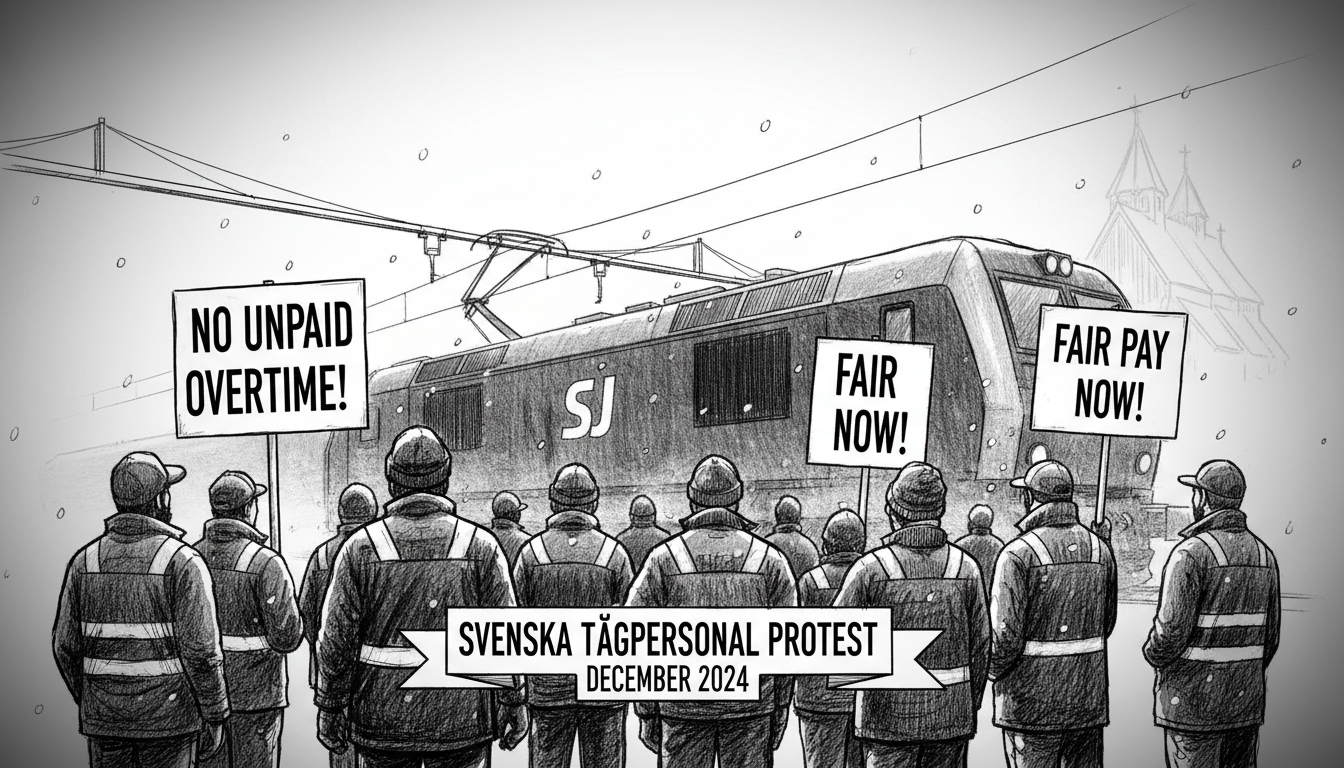Train personnel across southern Sweden voiced strong opposition this week as union members gathered outside Skånetrafiken's headquarters in Hässleholm. The protest coincided with a regional public transport committee meeting that could determine working conditions for hundreds of rail employees.
At the heart of the dispute lies a controversial clause in the national collective agreement that permits unpaid overtime. While local agreements have protected Pågatågen staff from this provision until now, those protections expire after the new year. This means train conductors and operational staff could soon work extra hours without additional pay.
Haris Habul, director of the train division at VR Sweden, acknowledged the difficult situation. 'Even with local agreements, this is an industry-wide arrangement we must follow,' he said in a statement. VR Sweden operates the Pågatågen regional trains serving commuters throughout Skåne.
The Swedish labor system often puzzles international observers. Sweden's collective bargaining tradition gives unions substantial power, making this unpaid overtime clause particularly surprising. Both the Seko union and employer organization Almega confirmed they're negotiating national-level changes to prevent train staff from working without compensation.
Pierre Sandberg of Almega emphasized their shared goal. 'We aim to reach a common conclusion that defuses this conflict issue,' he stated. Neither organization would explain why the unpaid overtime provision was initially included in the agreement.
This labor dispute reflects broader tensions in Sweden's transportation sector. As Stockholm and other cities expand their public transit networks to meet climate goals, fair working conditions become increasingly crucial. The outcome could influence similar negotiations affecting bus drivers, metro operators, and other transit workers.
For international residents in Sweden, this situation highlights important differences in labor relations. Sweden's system relies heavily on collective agreements rather than government regulation. When these agreements contain problematic clauses, workers must negotiate solutions through their unions rather than appealing to labor laws.
Commuters in Malmö, Lund, and Helsingborg should monitor these developments closely. Any work stoppages or reduced services could significantly impact daily travel throughout the region. The resolution of this conflict will likely set precedents for other transport workers considering similar grievances.
Rail unions face a delicate balancing act. They must protect member interests while maintaining essential public services. As Sweden continues its transition toward sustainable transportation, treating transit workers fairly becomes not just an ethical imperative but a practical necessity for system reliability.

